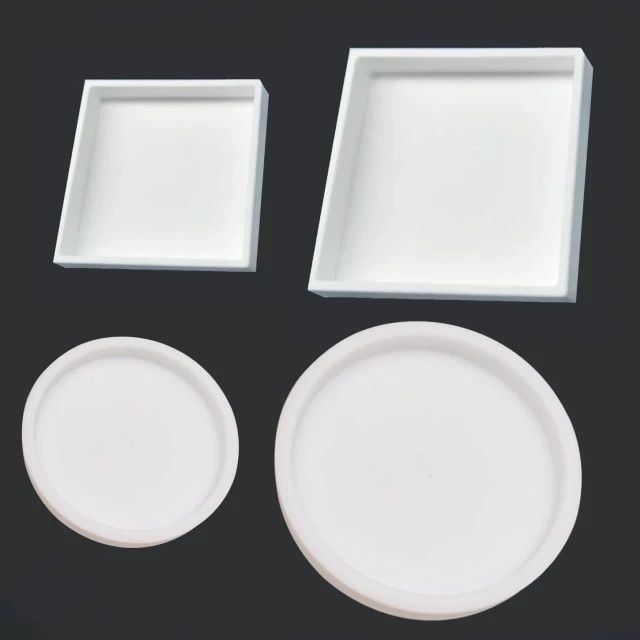
PTFE material
Custom PTFE Teflon Parts Manufacturer for PTFE Containers
Item Number : PTFE-11
Price varies based on specs and customizations
- Material
- PTFE
- Specification
- See the form
Shipping:
Contact us to get shipping details Enjoy On-time Dispatch Guarantee.
Why Choose Us
Easy ordering process, quality products, and dedicated support for your business success.
Introduction
PTFE container is a kind of container with excellent corrosion resistance and chemical inertness, which is stain-resistant, easy to clean, and easy to clean. It is often used in special fields such as storage, transportation and processing of high-purity chemicals, organic solvents, fluorine chemicals, and semiconductor materials.
Detail & Parts
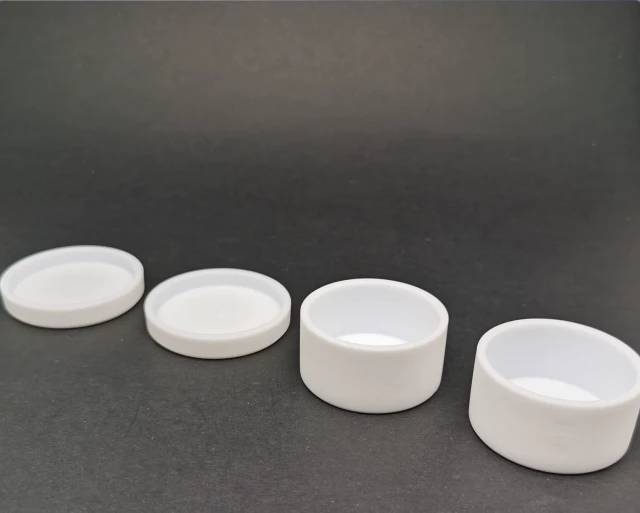
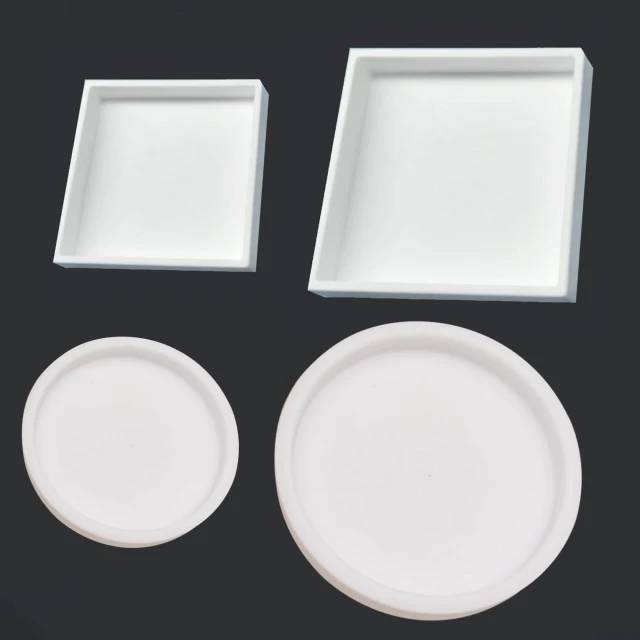
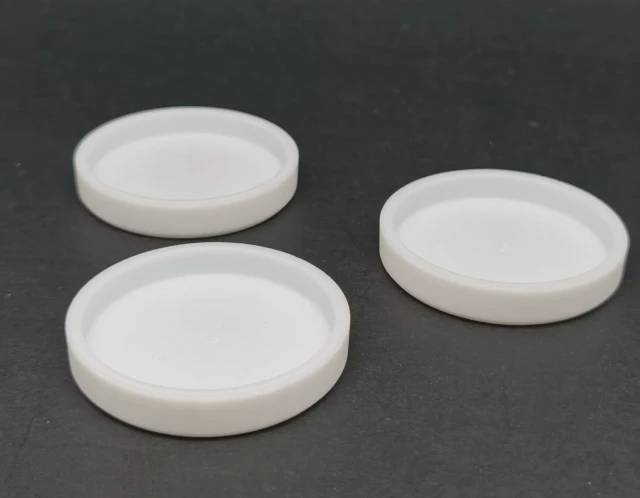
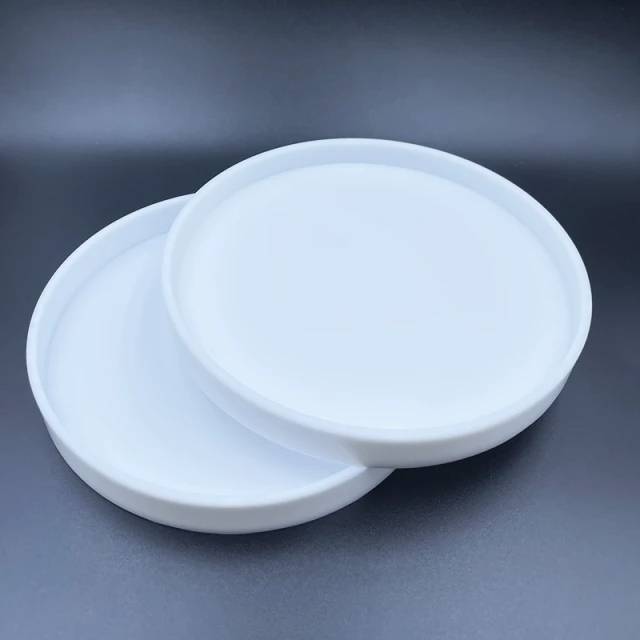
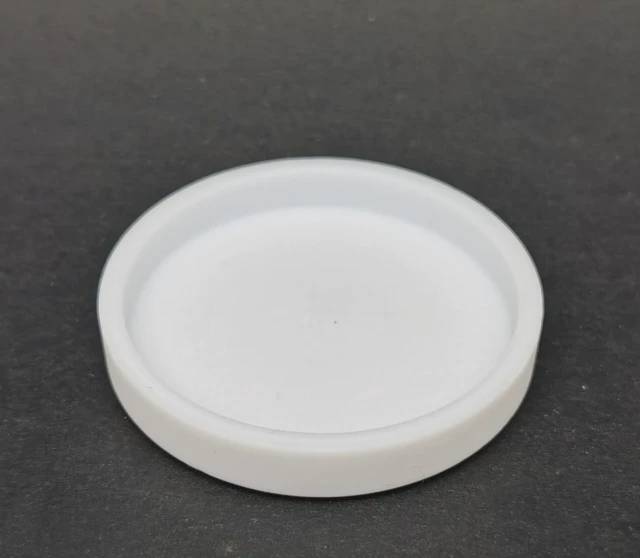
Technical specifications
| Round blood outer diameter*inner diameter*inner depth | Inner size of square dish*inner depth |
| 70mm*60mm*15mm | 60*60mm *15mm |
| 50mm*40mm*15mm | 80*80mm*15mm |
| 60mm*50mm*15mm | 90*90mm*15mm |
| 80mm*70mm*15mm | 100*100mm*15mm |
| 90mm*80mm*15mm | 110*110mm*15mm |
| 100mm*90mm*15mm | 120*120mm*15mm |
| 110mm*100mm*15mm | |
| 120mm*110mm*15mm | |
| 130mm*120mm*15mm | |
| 160mm*150mm*15mm | 200*200*120MM about 5L PTFE cylinder |
| 92*83*19mm | 10L PTFE cylinder |
| 102*93*20mm | 15L PTFE cylinder |
The product we show are available in different sizes and custom sizes are available on request.
Advantages
- High temperature resistance: PTFE can withstand high temperatures up to 450°C without melting, and it can maintain good mechanical toughness and elongation even at extremely low temperatures (-196°C).
- Corrosion resistance: PTFE exhibits excellent corrosion resistance to various chemicals, including strong acids, strong alkalis, and organic solvents. This characteristic makes it well suited for processing operations involving corrosive substances.
- High lubricity: PTFE has low surface tension and minimal adhesion to other substrates, and has the lowest friction among solid materials, making it an ideal lubricating medium in various applications.
- Non-toxic: PTFE is a colorless, odorless, non-toxic substance, suitable for medicine, aviation and other fields. Due to its biocompatibility, it can even be used as an additive for artificial organs.
Trusted by Industry Leaders

4.8 / 5
I highly recommend the PTFE container. It's perfect for storing and handling corrosive chemicals, and it's easy to clean.
4.9 / 5
I'm very impressed with the quality and durability of the PTFE container. It's a great value for the price.
4.7 / 5
The PTFE container is a great choice for storing and transporting sensitive materials. It's airtight and leak-proof, so I can be sure that my samples will stay safe.
4.6 / 5
I'm very happy with the PTFE container. It's easy to use and clean, and it's very durable.
4.8 / 5
The PTFE container is a great product. It's well-made and durable, and it meets all of my needs.
4.9 / 5
I highly recommend the PTFE container. It's a great value for the price, and it's perfect for my research needs.
4.7 / 5
I'm very happy with the PTFE container. It's made of high-quality materials and it's very durable.
4.6 / 5
The PTFE container is a great product. It's easy to use and clean, and it's very durable.
4.8 / 5
I highly recommend the PTFE container. It's perfect for storing and handling corrosive chemicals, and it's easy to clean.
4.9 / 5
I'm very impressed with the quality and durability of the PTFE container. It's a great value for the price.
4.7 / 5
The PTFE container is a great choice for storing and transporting sensitive materials. It's airtight and leak-proof, so I can be sure that my samples will stay safe.
4.6 / 5
I'm very happy with the PTFE container. It's easy to use and clean, and it's very durable.
4.8 / 5
The PTFE container is a great product. It's well-made and durable, and it meets all of my needs.
4.9 / 5
I highly recommend the PTFE container. It's a great value for the price, and it's perfect for my research needs.
4.7 / 5
I'm very happy with the PTFE container. It's made of high-quality materials and it's very durable.
4.6 / 5
The PTFE container is a great product. It's easy to use and clean, and it's very durable.
4.8 / 5
I highly recommend the PTFE container. It's perfect for storing and handling corrosive chemicals, and it's easy to clean.
4.9 / 5
I'm very impressed with the quality and durability of the PTFE container. It's a great value for the price.
4.7 / 5
The PTFE container is a great choice for storing and transporting sensitive materials. It's airtight and leak-proof, so I can be sure that my samples will stay safe.
REQUEST A QUOTE
Our professional team will reply to you within one business day. Please feel free to contact us!
Related Products
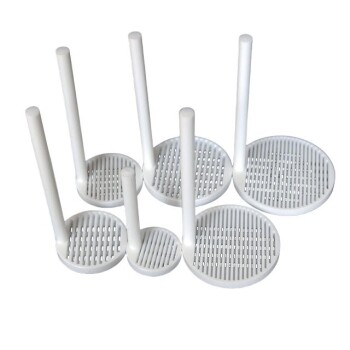
Custom PTFE Teflon Parts Manufacturer for Cleaning Racks
PTFE cleaning racks are mainly made of tetrafluoroethylene. PTFE, known as the "King of Plastics", is a polymer compound made of tetrafluoroethylene.

Custom PTFE Teflon Parts Manufacturer for PTFE Measuring Cylinder 10/50/100ml
PTFE measuring cylinder are a rugged alternative to traditional glass cylinders. They are chemically inert over a wide temperature range (up to 260º C), have excellent corrosion resistance and maintain a low coefficient of friction, ensuring ease of use and cleaning.
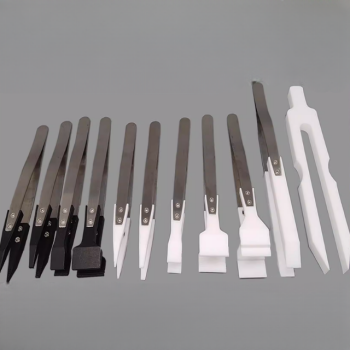
Custom PTFE Teflon Parts Manufacturer for PTFE Tweezers
PTFE tweezers inherit the excellent physical and chemical properties of PTFE, such as high temperature resistance, cold resistance, acid and alkali resistance, and corrosion resistance to most organic solvents.
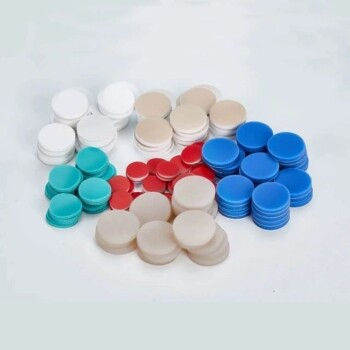
Custom PTFE Teflon Parts Manufacturer for Gaskets and More
Gaskets are materials placed between two flat surfaces to enhance the seal. To prevent fluid leakage, sealing elements are arranged between static sealing surfaces.
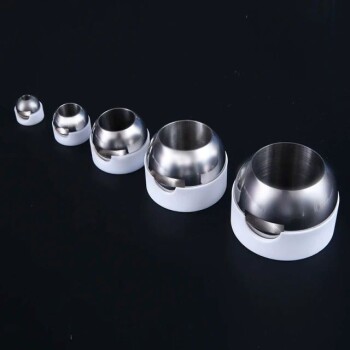
Custom PTFE Teflon Parts Manufacturer for PTFE Ball Valve Seat
Seats and inserts are vital components in the valve industry. As a key component, polytetrafluoroethylene is usually selected as the raw material.
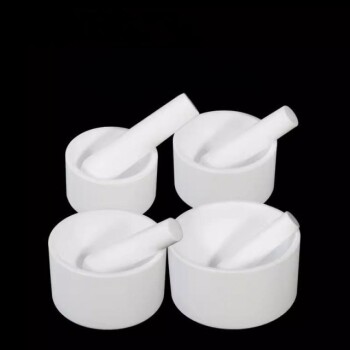
Custom PTFE Teflon Parts Manufacturer Grinding Bowl
PTFE is renowned for its exceptional chemical resistance, thermal stability, and low friction properties, making it a versatile material in various industries. The PTFE grinding bowl, specifically, finds applications where these properties are crucial.

Custom PTFE Teflon Parts Manufacturer for PTFE Buchner Funnel and Triangular Funnel
The PTFE funnel is a piece of laboratory equipment used primarily for filtration processes, particularly in the separation of solid and liquid phases in a mixture. This setup allows for efficient and rapid filtration, making it indispensable in various chemical and biological applications.
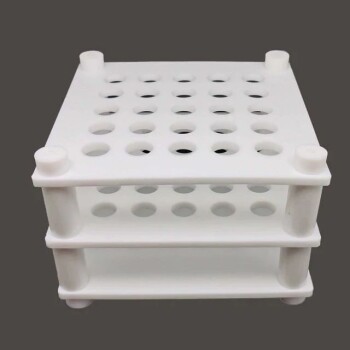
Custom PTFE Teflon Parts Manufacturer for Centrifuge Tube Racks
The precision-made PTFE test tube racks are completely inert and, due to the high temperature properties of PTFE, these test tube racks can be sterilized (autoclaved) without any problems.
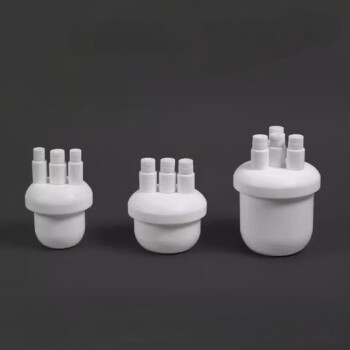
Custom PTFE Teflon Parts Manufacturer for Three-Necked Round Bottom Flask
PTFE flask, is a versatile laboratory container made from PTFE, offering exceptional chemical resistance, temperature stability, and non-stick properties. Ideal for handling corrosive substances and high-temperature applications, these flasks are essential in various laboratory procedures, including heating, mixing, and storage of chemicals.
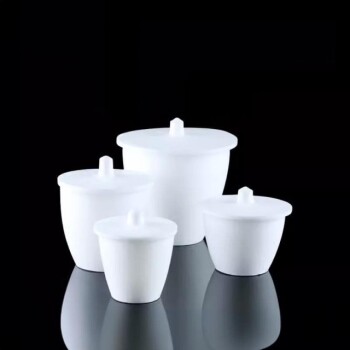
Custom Machined and Molded PTFE Teflon Parts Manufacturer with PTFE Crucible and Lid
PTFE crucibles, made from pure Teflon, offer chemical inertness and resistance from -196°C to 280°C, ensuring compatibility with a wide range of temperatures and chemicals. These crucibles feature machine-finished surfaces for easy cleaning and prevention of contamination, making them ideal for precise laboratory applications.

Custom PTFE Teflon Parts Manufacturer PTFE Beaker and Lids
The PTFE beaker is a laboratory container that is resistant to acid, alkali, high and low temperatures and is suitable for temperatures ranging from -200ºC to +250ºC. This beaker has excellent chemical stability and is widely used for heat treatment samples and volume analysis.

Custom PTFE Teflon Parts Manufacturer F4 Conical Flask Triangular Flask 50 100 250ml
The PTFE triangular flask, also known as a Teflon reagent bottle, is a robust, chemical-resistant alternative to traditional glass bottles, suitable for handling both acids and alkalis. These bottles are unbreakable, lightweight, and feature a leak-proof screw cap, making them ideal for laboratory use.
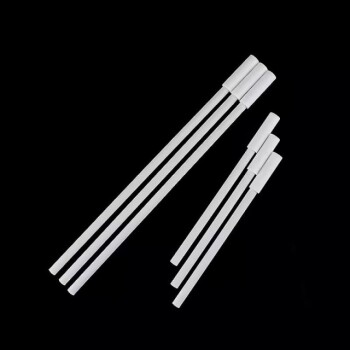
Custom PTFE Teflon Parts Manufacturer for PTFE Stirring Bar Recovery Rod
This product is used for stirrer recovery, and is resistant to high temperature, corrosion, and strong alkali, and is almost insoluble in all solvents. The product has a stainless steel rod inside and a polytetrafluoroethylene sleeve outside.
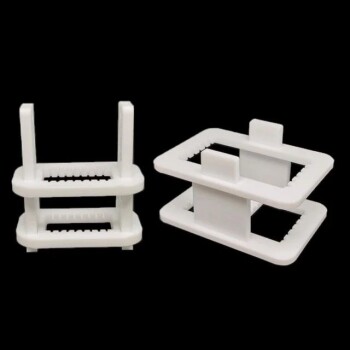
Custom PTFE Teflon Parts Manufacturer for Conductive Glass Substrate Cleaning Rack
The PTFE conductive glass substrate cleaning rack is used as the carrier of the square solar cell silicon wafer to ensure efficient and pollution-free handling during the cleaning process.
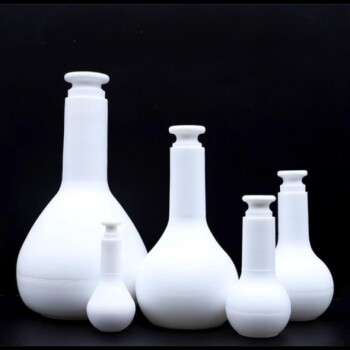
Custom PTFE Teflon Parts Manufacturer for F4 PTFE Volumetric Bottle
The PTFE Volumetric Flask, a robust alternative to glass and PP flasks, excels in measuring both acidic and alkaline liquids. Characterized by its chemical inertness, translucency, and wide volume options, this flask ensures a non-leachable, ultra-clean background. Its non-stick surface simplifies cleaning and maintenance, making it ideal for harsh laboratory conditions.

Custom PTFE Teflon Parts Manufacturer for PTFE Mesh F4 Sieve
PTFE mesh sieve is a specialized test sieve designed for particle analysis in various industries, featuring a non-metallic mesh woven from PTFE filament. This synthetic mesh is ideal for applications where metal contamination is a concern . PTFE sieves are crucial for maintaining the integrity of samples in sensitive environments, ensuring accurate and reliable results in particle size distribution analysis.

Custom PTFE Teflon Parts Manufacturer Corrosion Resistant Cleaning Rack Flower Basket
The PTFE cleaning rack, also known as the PTFE flower basket cleaning flower basket, is a specialized laboratory tool designed for the efficient cleaning of PTFE materials. This cleaning rack ensures thorough and safe cleaning of PTFE items, maintaining their integrity and performance in laboratory settings.
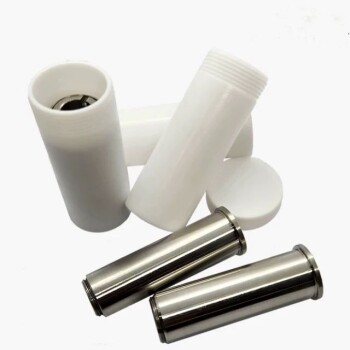
Custom PTFE Teflon Parts Manufacturer for PTFE Bottle Oil Fume Sampling Tube
PTFE products are generally called "non-stick coating", which is a synthetic polymer material that replaces all hydrogen atoms in polyethylene with fluorine.

Custom PTFE Teflon Parts Manufacturer for Magnetic Stirring Bar
The PTFE magnetic stirring bar, made from high-quality PTFE, offers exceptional resistance to acids, alkalis, and organic solvents, coupled with high-temperature stability and low friction. Ideal for laboratory use, these stirring bars are compatible with standard flask ports, ensuring stability and safety during operations.
Related Articles

PTFE seals: the invisible guardian of industrial leakage prevention
PTFE Seals are used to prevent liquid or gas leakage and are widely used in valves, pumps, and piping systems.

Versatile Applications of PTFE Cleaning Racks: Enhancing Laboratory Efficiency and Precision
Delve into the diverse applications of PTFE cleaning racks in laboratory settings. Discover how these essential tools optimize cleaning processes, enhance precision, and contribute to overall laboratory efficiency and accuracy.

In-depth analysis of the key characteristics and advantages of polytetrafluoroethylene
This paper will take an in-depth look at the key properties of polytetrafluoroethylene (PTFE), such as high-temperature resistance, corrosion resistance and low friction, as well as the wide range of applications and advantages in industry and everyday life.

PTFE Cleaning Racks: The Ultimate Guide to Cleaning and Drying Labware
In this comprehensive guide, we'll delve into the world of PTFE cleaning racks, exploring their benefits, applications, and the best practices for cleaning and drying labware to ensure optimal performance and longevity.

PTFE Shovel: A Comprehensive Guide to Its Uses, Advantages, and Applications
Discover the versatile applications of PTFE shovels in various industries, including their unique properties, benefits, and real-world examples. Explore the advantages of PTFE shovels over traditional materials and delve into the specific uses in laboratory settings.

The key role of PTFE in semiconductor manufacturing: from gas pipelines to electrical insulation
From high-purity gas delivery pipelines to precision electrical insulation components, the multi-faceted application of PTFE in the semiconductor industry chain provides important guarantees for the purity, stability and reliability of the manufacturing process.

Innovative Application of PTFE in Mechanical Seals
PTFE has become one of the core materials in the field of mechanical seals due to its unique chemical stability, low friction coefficient (0.04-0.15), wide temperature range (-268°C to +315°C) and excellent corrosion resistance (pH 0-14).

Polytetrafluoroethylene (PTFE): How low friction coefficient promotes industrial progress
Explore the unique advantages of polytetrafluoroethylene (PTFE)'s low coefficient of friction and analyze how it promotes progress and innovation in industrial technology in terms of reducing wear and improving equipment efficiency.

PTFE's high temperature and corrosion resistance: Why it is indispensable in industry
The unique advantages of polytetrafluoroethylene (PTFE) in high temperature and corrosion resistance analyze why it has become an indispensable material in industry, especially in applications in harsh environments.

Chemical Vapor Deposition (CVD) Process and High Purity PFA Tubing
An overview of the CVD process and the role of high purity PFA tubing in semiconductor manufacturing.

Understanding and Selecting the Right Microplates for Laboratory Applications
Guide to choosing microplates based on pore density, materials, colors, well shapes, and surface finishes for various laboratory applications.

Performance and application of polytetrafluoroethylene (PTFE) in high temperature environment